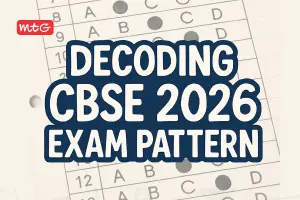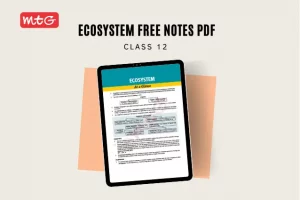
NCERT class 8 mathematics chapter 12 – “Factorisation” teaches us that when we factorise an algebraic expression, we write it as a product of factors. These factors may be numbers, algebraic variables or algebraic expressions. For the CBSE exams, practice multiple-choice questions (MCQs) to prepare for the objective questions. We have provided Class 8 MCQ Questions on “Factorisation” paired with comprehensive explanations. CBSE is emphasizing the role of MCQs as they assist in understanding the concepts completely.
As compared to subjective questions, MCQs are very different so practicing and understanding how to get appropriate answers in MCQs is very essential. To revise the main concepts, students should practice all the MCQs with the answers given. This will also help them familiarize themselves with the kinds of questions that might appear in the board exams.
Recent – Direct and Inverse Proportions Class 8 MCQs with Answers – Mathematics Chapter 11 – Free PDF
Also Check – Class 8 Mathematics MCQs with Answers
Topics covered in “Factorisation”
- Factors of Natural Numbers
- Factors of Algebraic Expressions
- What is Factorisation
- Method of Common Factors
- Factorisation by Regrouping terms
- Factorisation using Identities
- Factors of the form (x+a) (x+b)
- Division of Algebraic Expressions
- Division of a Monomial by Another Monomial
- Division of a Polynomial by a Monomial
CBSE Class 8 Mathematics Factorisation MCQs – PDF Download
Answers –
Summary for NCERT class 8 mathematics chapter 12 – “Factorisation”
- When we factorise an expression, we write it as a product of factors. These factors may be numbers, algebraic variables or algebraic expressions.
- An irreducible factor is a factor which cannot be expressed further as a product of factors.
- A systematic way of factorising an expression is the common factor method. It consists of three steps: (i) Write each term of the expression as a product of irreducible factors (ii) Look for and separate the common factors and (iii) Combine the remaining factors in each term in accordance with the distributive law.
- Sometimes, all the terms in a given expression do not have a common factor; but the terms can be grouped in such a way that all the terms in each group have a common factor. When we do this, there emerges a common factor across all the groups leading to the required factorisation of the expression. This is the method of regrouping.
- In factorisation by regrouping, we should remember that any regrouping (i.e., rearrangement) of the terms in the given expression may not lead to factorisation. We must observe the expression and come out with the desired regrouping by trial and error.
- In expressions which have factors of the type (x + a) (x + b), remember the numerical term gives ab. Its factors, a and b, should be so chosen that their sum, with signs taken care of, is the coefficient of x.
- We know that in the case of numbers, division is the inverse of multiplication. This idea is applicable also to the division of algebraic expressions.
- In the case of division of a polynomial by a monomial, we may carry out the division either by dividing each term of the polynomial by the monomial or by the common factor method.
- In the case of division of a polynomial by a polynomial, we cannot proceed by dividing each term in the dividend polynomial by the divisor polynomial. Instead, we factorise both the polynomials and cancel their common factors.
- In the case of divisions of algebraic expressions that we studied in this chapter, we have Dividend = Divisor × Quotient. In general, however, the relation is Dividend = Divisor × Quotient + Remainder






























